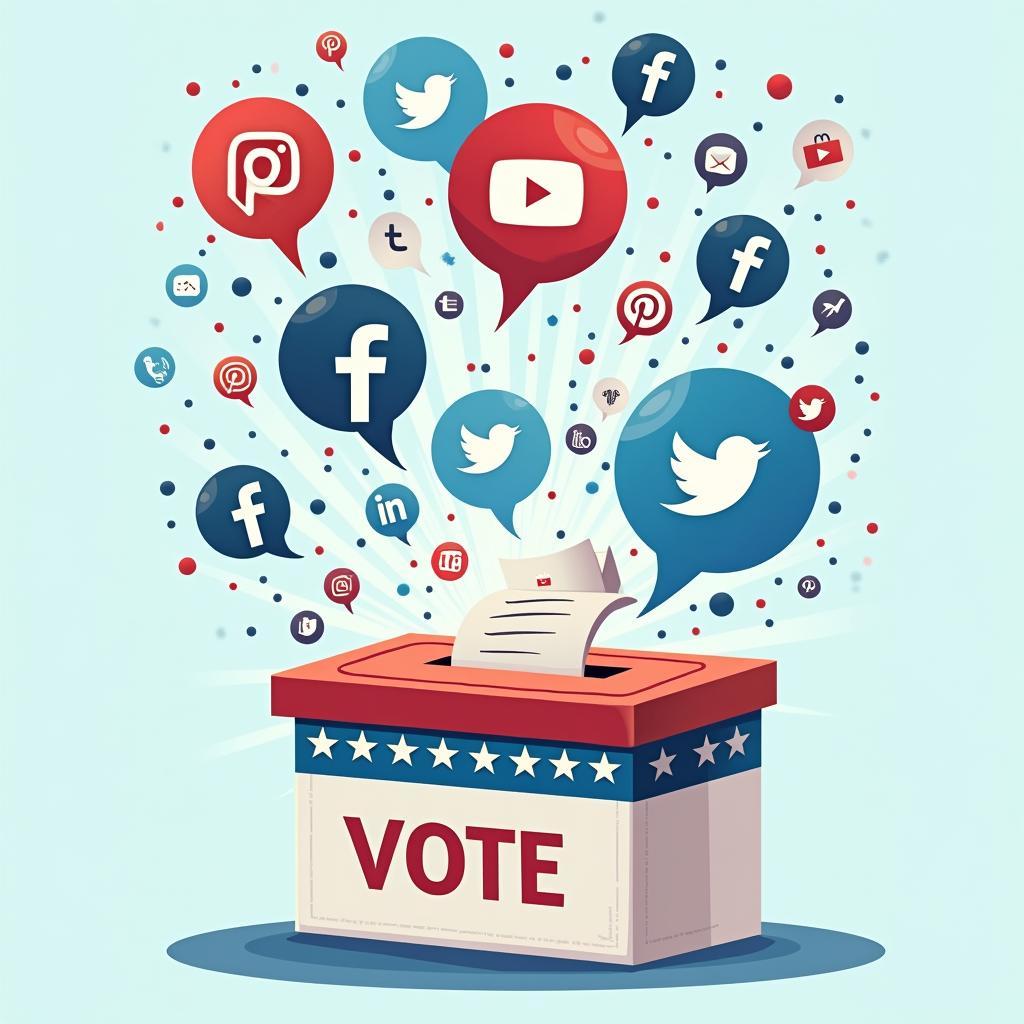Social media’s influence on elections has become an increasingly common topic in IELTS Writing Task 2, appearing in various forms over the past few years. Based on analysis from The impact of technology on public opinion, this theme is likely to remain relevant for future tests.
Nội dung bài viết

Sample Question Analysis
Some people believe that social media platforms have a negative impact on the electoral process and should be strictly regulated during election periods. To what extent do you agree or disagree with this statement?
This question requires candidates to:
- Express their position on social media regulation during elections
- Support arguments with relevant examples
- Consider both positive and negative impacts
- Provide a balanced discussion
Band 8.5 Sample Essay
The influence of The impact of social media on politics has sparked intense debate regarding its regulation during electoral periods. While I partially agree that some oversight is necessary, I believe strict regulation could be counterproductive.
Social media platforms can indeed pose significant challenges to electoral integrity. The rapid spread of misinformation and fake news can manipulate public opinion and distort democratic processes. For instance, during the 2016 U.S. presidential election, numerous false stories circulated on Facebook reached millions of voters, potentially influencing their decisions. Moreover, echo chambers created by algorithmic content curation can reinforce existing beliefs and polarize voters further.
However, excessive regulation of social media during elections could have detrimental effects. These platforms serve as crucial channels for political discourse and voter engagement, particularly among younger demographics. They enable candidates to communicate directly with voters, facilitate political discussions, and increase electoral participation. Furthermore, social media has proven instrumental in exposing electoral irregularities and ensuring transparency.
The solution lies in implementing balanced measures rather than strict regulations. Social media companies should enhance their fact-checking mechanisms and improve content moderation while preserving open dialogue. Additionally, digital literacy education could help voters better evaluate online information and make informed decisions.
In conclusion, while social media presents challenges to electoral integrity, strict regulation is not the answer. A balanced approach combining platform self-regulation with voter education would better serve democratic processes.
Band 6.5 Sample Essay
As discussed in The impact of fake news on democracy, social media has changed how people get information about elections. I agree that some control is needed but not too much.
Social media can cause problems during elections. Many people share fake news without checking if it’s true. This can make voters confused about who to vote for. Also, some people use social media to attack other candidates in bad ways. For example, in many countries, political groups use Facebook to spread false information about their opponents.
However, social media also helps democracy in good ways. Young people can learn about elections on platforms like Instagram and Twitter. Politicians can talk directly to voters and answer their questions. Also, when something wrong happens during voting, people can share videos and photos on social media quickly.
I think the best solution is to have some rules but not very strict ones. Social media companies should check information better and remove fake news. But they should not stop people from sharing their opinions about elections. Also, schools should teach students how to know which information on social media is true.
In conclusion, while social media can cause some problems during elections, very strict rules are not good. We need to find a middle way that protects democracy but also lets people share their ideas freely.
Vocabulary Analysis
- Electoral integrity (n) /ɪˈlektərəl ɪnˈteɡrəti/ – the fairness and accuracy of the election process
- Misinformation (n) /mɪsˌɪnfərˈmeɪʃən/ – false or inaccurate information
- Echo chambers (n) /ˈekəʊ ˈtʃeɪmbəz/ – situations where people only encounter opinions that agree with their own
- Algorithmic (adj) /ˌælɡəˈrɪðmɪk/ – relating to or using algorithms
- Polarize (v) /ˈpəʊləraɪz/ – to divide into opposing groups
- Detrimental (adj) /ˌdetrɪˈmentl/ – causing harm or damage
- Irregularities (n) /ɪˌreɡjuˈlærətiz/ – things that are unusual or incorrect
- Content moderation (n) /ˈkɒntent ˌmɒdəˈreɪʃən/ – the process of monitoring and regulating content
Consider practicing with similar topics like The role of media in shaping opinions to improve your writing skills. Share your practice essays in the comments for feedback and discussion.